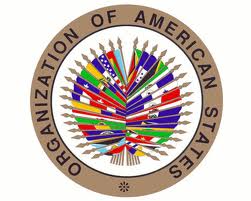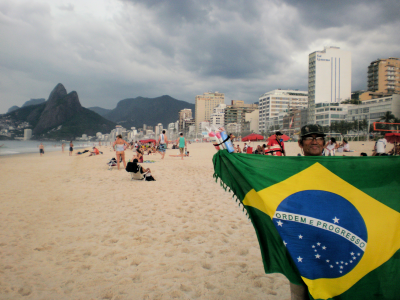
Is There a Solution to the Falklands/Malvinas Conflict?
The Falklands is a perennial red top tabloid favourite. But aside from providing patriotic copy, it is a squabble with serious diplomatic consequences. What to do (or not do) in the case of the islands remains tricky. Is there a solution? Theoretically, yes; practically, no. Theoretically, both countries could agree to a Hong Kong-like lease-back formula, whereby Argentina is accorded legal sovereignty over the islands but the British continue to govern them for a long period of time. This was a scheme conceived by the Foreign Office prior to the Falklands Crisis of 1982, though it had precious little political support in Britain. In the wake of the war, it became a dead letter. Another possible solution could be for …

Coordination in the Fight Against Transnational Organised Crime in the Americas: another band-aid solution?
In light of last month’s VI Summit of the Americas in Cartagena, Colombia, it seems obvious and commendable that the Secretary General of the Organization of American States (OAS), José Miguel Insulza, would call on the leaders of the region Friday to help coordinate the fight against transnational organised crime. The threat is, he claimed, the “main challenge to security in our hemisphere.” Insulza’s call comes on the heels of the adoption in Cartagena of Mexico’s proposal to create an Inter-American Centre for Coordination against Transnational Organised Crime. It is clear that dealers in drugs, arms and human trafficking (these items increasingly the wares of the same criminal merchants) do not limit their activities to the confines of national borders. And …

Next steps for Romney?
It continues to look like Mitt Romney will be the Republican candidate for President in the fall. While he is still fighting a war of attrition with Rick Santorum, it will take a major game changer for him to lose the primary. So it is no surprise that he is increasingly orienting himself towards the general election. What can the course of the campaign so far tell us about the challenges Romney will face and how he will try to tackle them? The drawn-out primary has been a mixed blessing, forcing Romney to cater to a conservative base out of touch with many Americans, forcing him to spend time and money battling right-wing rivals when he would have preferred to …

Political Reform in Brazil: Challenges and Opportunities
Last year was an extremely positive year for Brazilians. To begin with, Brazil overtook the United Kingdom and became the sixth largest world economy. Such growth came hand in hand with a continuing decrease in poverty and income inequality, and the strengthening of social policies by the recently elected president Dilma Rousseff (Workers Party). While her predecessor, Luiz Inácio Lula da Silva, sought to eradicate famine during his two terms in government, Dilma’s chief social ambition is to combat and eradicate extreme poverty. In line with her government slogan, “A Wealthy Country is a Country Without Poverty,” Dilma’s government transferred £5,8 billion to poor families in its first year in office. Apart from continuing progress in social policies, 2011 was …
Gender Matters in Selection of Female Party Candidates in Canada
Christine Cheng has recently co-published an article with Margit Tavits in Political Research Quarterly arguing that female party presidents in Canada are more likely to nominate female party candidates. The research is based on original data from Canada’s 2004 and 2006 federal elections. When the party’s gatekeeper or president is female, the candidate is also six percent more likely to be a woman. The effect is small, but statistically significant, making it important to consider in policies aimed at increasing female representation in politics. Namely, beyond parties’ formal rules to encourage female participation, informal interactions matter. Having more women in top political posts can be just as effective for attracting women to politics as formal party regulations. Another important finding …









